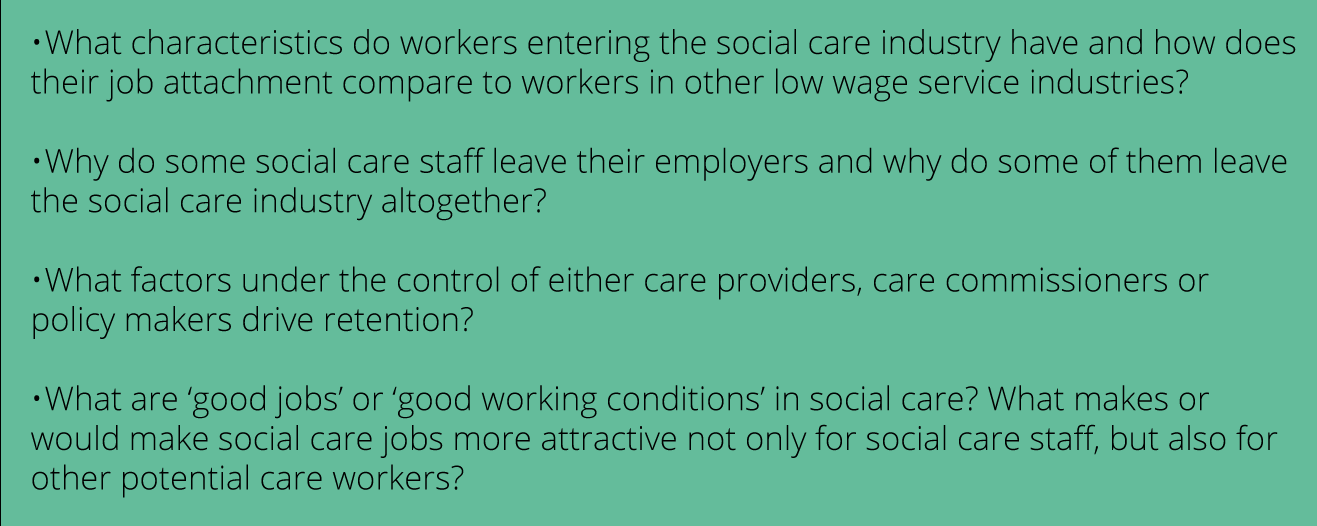October 9, 2019
 By Florin Vadean, Research Fellow at PSSRU
By Florin Vadean, Research Fellow at PSSRU
Despite the importance of labour supply of social care staff for both meeting demand for social care services and delivering good quality services through adequate staffing and continuity of care, there is little evidence on what drives recruitment and retention in social care.
The main input in the delivery of adult social care services is labour, with the social care sector employing about 1.6 million staff and staff costs accounting on average for about half of total running costs (Competition and Market Authority 2017). Therefore, the increasing demand for social care services due to population aging has an important bearing on the demand for social care staff. Forecasting models predict that in order to keep up with the increasing demand for social care services, the social care workforce would need to increase by 580,000 to 800,000 new jobs by 2035 (Skills for Care 2019).
All these challenges demand for hard evidence on what drives labour supply, recruitment and retention in social care so that care providers, commissioners and policymakers are able engage in a meaningful dialogue towards an effective and sustainable workforce.
The Health Foundation has recently awarded three year funding to a team of social scientists, health and labour economists from the Personal Social Services Research Unit (PSSRU) and the Centre for Health Services Studies (CHSS) at the University of Kent, the CASS Business School at City University of London, and the Department of Social Sciences at the University College London (UCL) to provide empirical evidence on:

The research team has strategically partnered with Skills for Care – the main source of workforce intelligence in Adult Social Care in England – for delivering the project. The analysis will be based on Skills for Care’s Adult Social Care Workforce Data Set (ASC-WDS) and Survey of Individual Employers and Personal Assistants as well as other large datasets like the UK Quarterly Labour Force Survey (QLFS) and the Annual Survey of Hours and Earnings (ASHE).
The project has started in April 2019 and will share early findings in spring 2020 in a first of three planned dissemination and engagement workshops with social care stakeholders and policymakers. The aim of these workshops is to ensure the research team will generate evidence that is aligned with the sector’s needs and users’ priorities.
You can find the RESSCW website at: www.pssru.ac.uk/resscw/frontpage/
“Retention and Sustainability of Social Care Workforce (RESSCW)” is part of the Health Foundation’s Efficiency Research Programme. The Health Foundation is an independent charity committed to bringing about better health and health care for people in the UK.